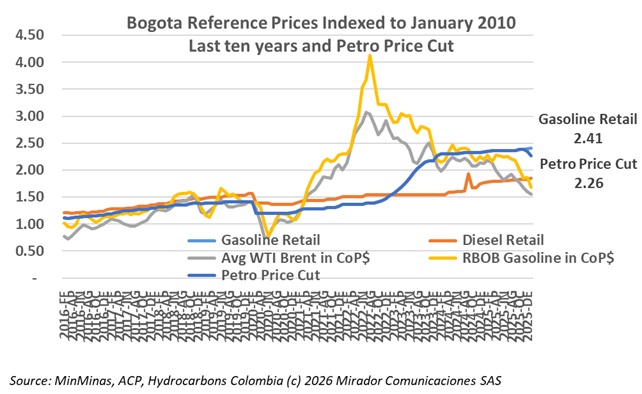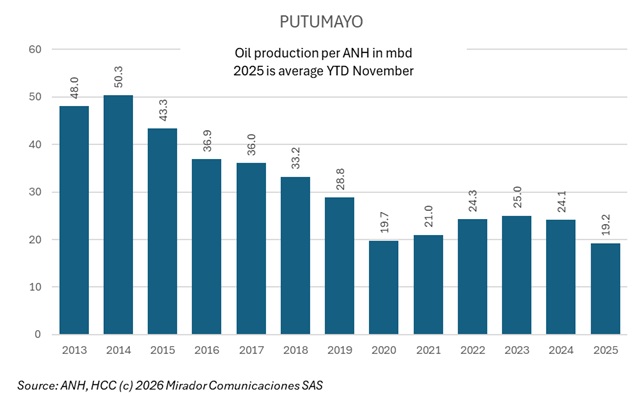
Energy Minister Edwin Palma signed a resolution making effective a CoP$500 per gallon gasoline price reduction beginning February 1, 2026, while maintaining stable diesel prices.
In a Guarumo-Ecoanalítica poll (Jan 14-22, 4,245 respondents): Iván Cepeda of Pacto Histórico leads with 33.6% support, followed by conservative attorney Abelardo De la Espriella at 18.2%, and Centro Democrático’s Paloma Valencia at 6.9%.
The Centro Nacional de Consultoría (CNC) presidential poll conducted January 15-21, 2026 among 2,202 people in 56 municipalities reveals Iván Cepeda maintaining his frontrunner position with 28.2% voter intention, while competition intensifies for second place ahead of Colombia’s May 2026 elections.

Ecuador confirmed a 900% increase in crude transport tariffs through the Sistema de Oleoducto Transecuatoriano (SOTE), raising rates from US$3 to US$30 per barrel effective January 23, 2026.
Colombia’s Constitutional Court suspended President Gustavo Petro’s economic emergency decree, halting multiple tax measures that would have significantly impacted the petroleum and mining sectors.
Mónica de Greiff, former president of Ecopetrol’s Board of Directors, explained in an extensive Revista Semana interview the circumstances surrounding her October 2025 resignation after initially attempting to resign in May 2025.
The US Department of Treasury’s Office of Foreign Assets Control (OFAC) issued General License 46 on January 29, authorizing established US entities to engage in Venezuelan oil sector activities including “lifting, exportation, reexportation, sale, resale, supply, storage, marketing, purchase, delivery, or transportation of Venezuelan-origin oil, including the refining of such oil,” subject to strict conditions.
Colombia’s Environment and Sustainable Development Ministry has opened a public consultation to define the roadmap for implementing the Escazú Agreement, aiming to strengthen environmental democracy and guarantee rights to information, public participation, and environmental justice.

Ecuador’s decision to raise crude transport tariffs through its Trans-Ecuadorian Pipeline System (SOTE) from US$3 to US$30 per barrel—a 900% increase—has forced Colombian oil companies to evaluate costly alternatives for evacuating production from southern Putumayo department.
Guyana’s petroleum boom transformed the South American nation of 800,000 inhabitants into the world’s largest per capita oil producer and Latin America’s fastest-growing economy.